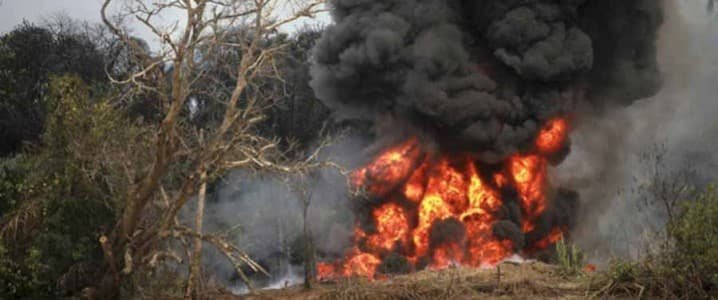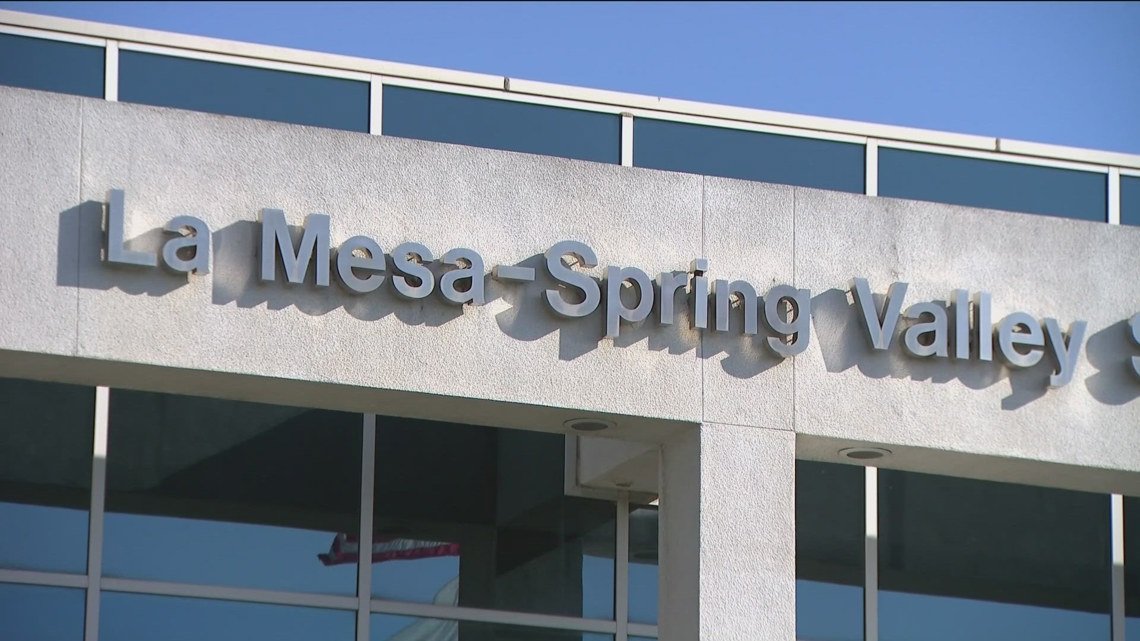Apr 30, 2025 | By: Sydney Dick
The Reclaiming and Advancing Leech Lake Youth (RALLY) Coalition is a group focused on youth substance misuse and suicide prevention in the Walker-Hackensack-Akeley area. Just last Thurday, group organizers put together a community driven conversation focused on changing the narrative surrounding talking about mental health and suicide, especially in youth.
The initiative, funded by the Minnesota Department of Health, tries to help normalize conversations around these difficult topics so people know when they have support.
“I think we’re all struggling and sometimes we struggle in silence,” said RALLY Coalition Coordinator Jen Buie. “So having these conversations brings light to it and normalizes it, makes us more comfortable, and just reminds us that we’re all in this together. We’re all connected, and if we can be there for each other, we’ll all benefit from that.”
The “Changing the Narrative” conversation was open to the public and concerned how to recognize different signs of struggle in young people. Everything from noticing small changes in behavior to a complete change in personality can be signs that the person is going through difficult times. In rural areas, there also may be fewer available resources for those in a crisis.
“We are lacking those professional resources. So my goal is to train myself up as much as possible and then share that out with community members so that we’re all a resource for each other,” explained Buie. “These trainings are free and the more people that come, the more we can send out that message of hope and that there is help.”
The RALLY Coalition’s next event will be held on May 19th, where a day full of presenters and exhibitors will help W-H-A students from grades 6 to 12 make more informed decisions about their well-being. After the school day, there will be another conversation that will be open to the public at 5:30 p.m. in the W-H-A gym.
If you or someone you know is struggling or in crisis, you can call or text the Suicide & Crisis Lifeline at 988. The lifeline is available 24 hours a day, seven days a week, and 365 days a year.
Education & Government
Education & Government
News
Community
Sign up to stream all your favorite shows.
108 Grant Ave NE, Bemidji, MN 56601
800-292-0922
KAWE Public Profile
KAWB Public Profile
Cable Provider Channel List
EIN 411265701
Subscribe
Get The Free PBS App
FireTV
Roku
AppleTV
AndroidTV
Google Play
Apple Store
© 2025 Lakeland PBS. All Rights Reserved.
Minnesota Web Design by Evolve Creative
Privacy Policy
Leave a Comment
Oil Theft, Explosions, and Militants Nigeria's Energy Future at Risk – Crude Oil Prices Today | OilPrice.com
Click Here for 150+ Global Oil Prices 
Click Here for 150+ Global Oil Prices 
Click Here for 150+ Global Oil Prices 
Click Here for 150+ Global Oil Prices 
Click Here for 150+ Global Oil Prices 
Click Here for 150+ Global Oil Prices 
Click Here for 150+ Global Oil Prices 
Click Here for 150+ Global Oil Prices 
Fusion Project Completes World’s Most Powerful Magnet System
Find us on:
The number of oil rigs…
Oil prices have seen a…
Crude oil prices were trading…
Irina Slav
Irina is a writer for Oilprice.com with over a decade of experience writing on the oil and gas industry.
More Info
Last November, Nigeria’s oil production hit the highest in 2024, at 1.7 million barrels daily. The country’s government has a stated ambition to boost that considerably, by some 1 million barrels daily within two years. But there is a problem it needs to solve first: pipeline sabotage.
Earlier this week, an explosion rocked the Trans-Niger Pipeline, one of the main conduits for crude pumped in the Niger Delta, which carries it to the Bonny export terminal. The explosion sparked a massive fire at a section of the pipeline and the flow of oil had to be rerouted, which was done promptly. The investigation on the blast is ongoing, but a spokesman for Renaissance Group, the owner of the pipeline, said there were suspicions of arson.
The Trans-Niger Pipeline has a capacity of 450,000 barrels daily. That’s 15% of Nigeria’s total oil export capacity—and that makes the explosion an even bigger deal than it might have seemed initially. Because successive Nigerian governments have been trying for years to stop the theft and sabotage of pipelines as a means of reviving the industry. Instead, Big Oil has shrunk its presence in Africa’s biggest producer, in large part because of the thefts and sabotage. And Nigeria needs fresh oil investments to make that production boost happen.
Related: Russia’s Oil Price Drops 24% Below Budget Target
“This is a blow to the Tinubu government’s recent successes on oil output, gains driven in part by improved security measures,” Clementine Wallop, director for sub-Saharan Africa at political-risk consultant Horizon Engage, told Bloomberg. “It is also a very difficult investment signal during a period where the government seemed to be turning a corner on energy.”
The explosion comes barely a month after the chief executive of the Nigerian Upstream Petroleum Regulatory Commission declared that Nigeria was “more ready for business than ever,” adding that the federal government was committed to regulatory certainty, investment-friendly policies, and global competitiveness. Yet infrastructure security continues to be a problem, and that could very well derail the rest of the government efforts.
Last year, one local oil company and the government estimated that Nigeria loses between 200,000 barrels and 400,000 barrels daily to oil theft. These are dramatic figures because they translate into billions of lost income for the state—and into hesitancy among international oil operators to return to, or enter, Nigeria.
There are more dramatic figures, too. Back in 2022, the Trans-Niger Pipeline was literally perforated by illegal connections, with the head of the Nigerian National Petroleum Company’s chief reporting that in “less than 200 kilometres we had 295 illegal connections.” As a result, the country’s oil output at one point dipped below 1 million barrels daily – from as much as 1.8 million barrels daily.
Since then, efforts have been made to eliminate theft and they have been partially successful, with losses much lower than they were in 2022. Yet that may not be enough to bring in more investment—because that pipeline blast this week was not the work of oil thieves.
Nigerian daily Vanguard reported, following the explosion, that it could be the work of militant groups active in the Niger Delta. The militants have threatened to attack oil infrastructure in the Rivers state amid an ongoing political crisis between the state and the federal government over federal money allocation to Rivers, the report said.
The issue of federal oil money distribution to the communities in Nigeria’s oil heartland has long been a bone of contention between the central government and those same communities—and it has been linked to militant activity by radical groups such as the Niger Delta Avengers, who were active in the Delta area about a decade ago, targeting oil infrastructure as a means of sending their message about the injustice of oil money distribution. Disgruntlement among the Delta communities also led to the sprouting of other militant groups that also attacked pipelines and export terminals until the government cut a deal with them.
“The approach Renaissance takes will be crucial in setting the tone around how the above ground challenges in Nigeria’s oil and gas sector will be resolved by the indigenous operators,” the head of West African upstream research at Wood Mackenzie, Mansur Mohammed, told Bloomberg. Indeed, the company’s actions now will be watched closely by companies that may be willing to enter or boost their presence in Nigeria.
For now, the signs appear to be positive. Renaissance, which bought the Trans-Niger Pipeline from Shell, was quick in rerouting the flow of oil and has stopped short of declaring force majeure on exports from the Bonny terminal. Now, it’s up to the government to work with the industry and demonstrate that it can put an end to the sabotage and the theft. And they’d do well to keep an eye on gas infrastructure as well—criminals are targeting gas pipelines, too, now, as security gets boosted around oil infrastructure.
By Irina Slav for Oilprice
More Top Reads From Oilprice.com
Back to homepage
Irina is a writer for Oilprice.com with over a decade of experience writing on the oil and gas industry.
Oil Prices Drop as Supply Concerns Continue
Solar Power Surge Sinks Europe’s Electricity Prices Deep Below Zero
World Bank: Get Ready for a Commodity Price Freefall
Cheap Crude Tests U.S. Shale’s Breaking Point
China Built More Clean Energy Than Coal—But Can’t Use Half of It
ADVERTISEMENT
© OilPrice.com
The materials provided on this Web site are for informational and educational purposes only and are not intended to provide tax, legal, or investment advice.
Nothing contained on the Web site shall be considered a recommendation, solicitation, or offer to buy or sell a security to any person in any jurisdiction.
Merchant of Record: A Media Solutions trading as Oilprice.com
Leave a Comment
‘It’s been a long road;’ Woman’s health insurance nightmare comes to an end 18 months later – WHIO TV
This website is unavailable in your location.
It appears you are attempting to access this website from a country outside of the United States, therefore access cannot be granted at this time.
Leave a Comment
Leave a Comment
La Mesa-Spring Valley School District faces early loss of mental health grant – cbs8.com
To stream CBS 8 on your phone, you need the CBS 8 app.
Next up in 5
Example video title will go here for this video
Next up in 5
Example video title will go here for this video
LA MESA, Calif. — The La Mesa-Spring Valley School District received a letter from the United States Department of Education stating that their federal award will not continue in its entirety, effective at the end of their current grant budget period.
“It’s sort of our worst nightmare. You know we’ve heard of programs being cut at the federal level with the new administration, but honestly did not think this was something that was vulnerable at all,” La Mesa-Spring Valley School District Superintendent David Feliciano said.
The district received the Federal School-Based Mental Health Grant in 2023 to provide vital mental health services for students, which include counseling, early intervention, preventative behavior support and support for mental health crises. The grant was originally set to last through December 2027 and officially end in 2028, but will now end in December 2025, according to the superintendent.
The letter from the Department of Education cited a conflict between the current administration’s priorities and those of the previous administration as the reason for the early termination stating in part, “The Department has undertaken a review of grants and determined that the grant specified above provides funding for programs that reflect the prior Administration’s priorities and policy preferences and conflict with those of the current Administration, in that the programs: violate the letter or purpose of Federal civil rights law; conflict with the Department’s policy of prioritizing merit, fairness, and excellence in education; undermine the well-being of the students these programs are intended to help; or constitute an inappropriate use of federal funds.”
Feliciano expressed concern about the impact of losing these services.
“We’re talking about the loss of all of those services and including all of those educators that work so closely with our students,” he said.
Tad Bruneau, a parent in the district and an occupational therapist working in early intervention, expressed the importance of mental health services.
“I just think that it’s important to put money into services like that, so it’s disappointing if they are cutting services like that,” Bruneau said.
Bruneau also emphasized the ongoing need for mental health support for students affected by the COVID-19 pandemic.
“We had the COVID lockdown, and kids that were at home, and that were nervous about things, and then missed all that time to be around other kids and be in a setting,” Bruneau said. “So I think that there’s still work to do to catch up, and I think that cutting services instead of adding to them right now doesn’t really make a lot of sense.”
The school district plans to appeal the early funding cut.









